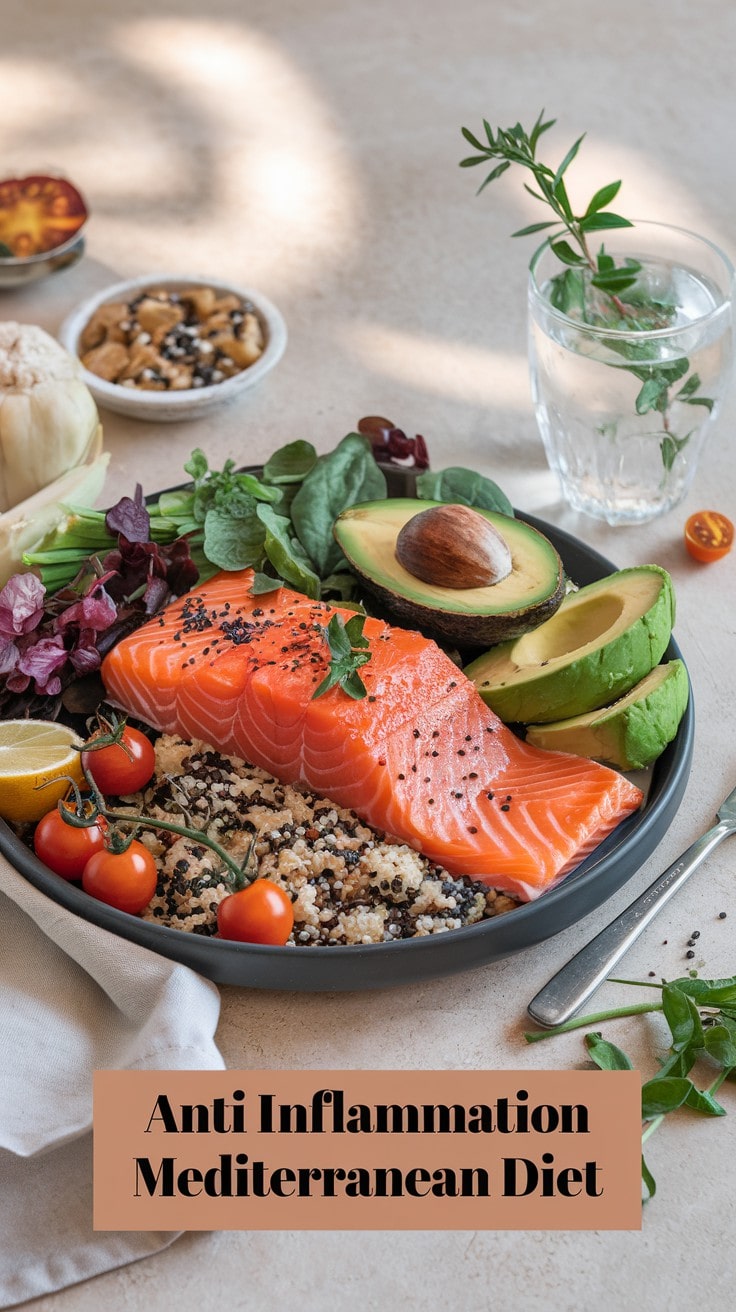How To Eat To Reduce Inflammation In The Body
Inflammation is a natural response of the body to protect itself from harm. However, chronic inflammation can lead to health problems, including heart disease, arthritis, and other conditions. Fortunately, adopting an anti-inflammatory diet can help reduce inflammation and promote overall well-being. Here are some effective dietary strategies to reduce inflammation in the body.
1. Incorporate Anti-Inflammatory Foods
The first step in reducing inflammation is to include anti-inflammatory foods in your diet. These foods are rich in antioxidants, vitamins, and minerals that help protect the body. Some of the best anti-inflammatory foods include:
- Fruits and Vegetables: Especially berries, leafy greens, tomatoes, and bell peppers. These are packed with antioxidants and phytonutrients.
- Fatty Fish: Salmon, sardines, and mackerel are rich in omega-3 fatty acids, which have powerful anti-inflammatory effects.
- Nuts and Seeds: Almonds, walnuts, chia seeds, and flaxseeds are great sources of healthy fats and anti-inflammatory compounds.
- Olive Oil: Extra virgin olive oil contains oleocanthal, which has anti-inflammatory properties similar to ibuprofen.
- Turmeric: This spice contains curcumin, a powerful anti-inflammatory and antioxidant compound.
- Ginger: Known for its anti-inflammatory and antioxidant effects, ginger can be used in teas, smoothies, and cooking.
2. Avoid Pro-Inflammatory Foods
Just as important as adding anti-inflammatory foods is avoiding those that contribute to inflammation. Common pro-inflammatory foods to limit or avoid include:
- Processed Foods: High in trans fats, sugars, and artificial additives that can increase inflammation.
- Refined Carbohydrates: White bread, pastries, and other processed carbs can spike blood sugar levels and trigger inflammatory responses.
- Fried Foods: Foods fried in vegetable oils like corn oil or sunflower oil, which contain omega-6 fatty acids, can promote inflammation when consumed in excess.
- Sugary Beverages: Soft drinks and other sugary drinks can lead to insulin resistance and inflammation.
- Red and Processed Meats: These contain saturated fats and compounds like nitrites that can increase inflammation.
3. Balance Your Omega-3 and Omega-6 Fatty Acids
While omega-6 fatty acids are essential, they can promote inflammation when consumed in excess and not balanced with omega-3s. Most Western diets are high in omega-6 fats, found in processed vegetable oils, and low in omega-3s. Aim to include more omega-3-rich foods like:
- Fatty fish (salmon, mackerel, sardines)
- Chia seeds and flaxseeds
- Walnuts
- Algae oil (for a plant-based option)
4. Eat More Whole Grains
Whole grains like quinoa, brown rice, oats, and barley are packed with fiber and nutrients that help reduce inflammation. They also support a healthy gut microbiome, which plays a crucial role in regulating inflammation. Avoid refined grains and choose whole grains for a healthier alternative.
5. Focus on Plant-Based Proteins
Plant-based proteins, such as beans, lentils, chickpeas, and tofu, are not only high in protein but also rich in fiber and antioxidants that help fight inflammation. Incorporating more plant-based meals can reduce your intake of saturated fats found in animal proteins, which may increase inflammation.
6. Hydrate with Anti-Inflammatory Beverages
Staying hydrated is key to maintaining health and reducing inflammation. Opt for anti-inflammatory drinks like:
- Green Tea: Packed with antioxidants like catechins, green tea has anti-inflammatory properties.
- Turmeric Tea: A warm cup of turmeric tea with black pepper can enhance curcumin absorption and reduce inflammation.
- Water: Drinking enough water helps flush out toxins and supports overall health.
7. Add Fermented Foods for Gut Health
A healthy gut microbiome is essential for controlling inflammation. Including fermented foods like yogurt, kefir, sauerkraut, and kimchi can provide probiotics that improve gut health and reduce inflammation.
8. Incorporate Herbs and Spices
Herbs and spices not only add flavor but also offer anti-inflammatory benefits. Some excellent options include:
- Turmeric: Contains curcumin, a powerful anti-inflammatory compound.
- Ginger: Reduces inflammation and can be added to meals, smoothies, or tea.
- Garlic: Known for its anti-inflammatory and immune-boosting properties.
- Cinnamon: Helps lower inflammation and stabilize blood sugar levels.
9. Maintain a Balanced Diet and Lifestyle
Beyond diet, managing stress, getting regular exercise, and ensuring adequate sleep are crucial in controlling inflammation. Practicing mindfulness and yoga can also support your efforts in reducing stress and inflammation levels.
Conclusion
By adopting an anti-inflammatory diet and lifestyle, you can effectively manage and reduce inflammation in your body. Incorporate nutrient-rich foods, stay hydrated, and avoid processed options to promote overall health and well-being.





